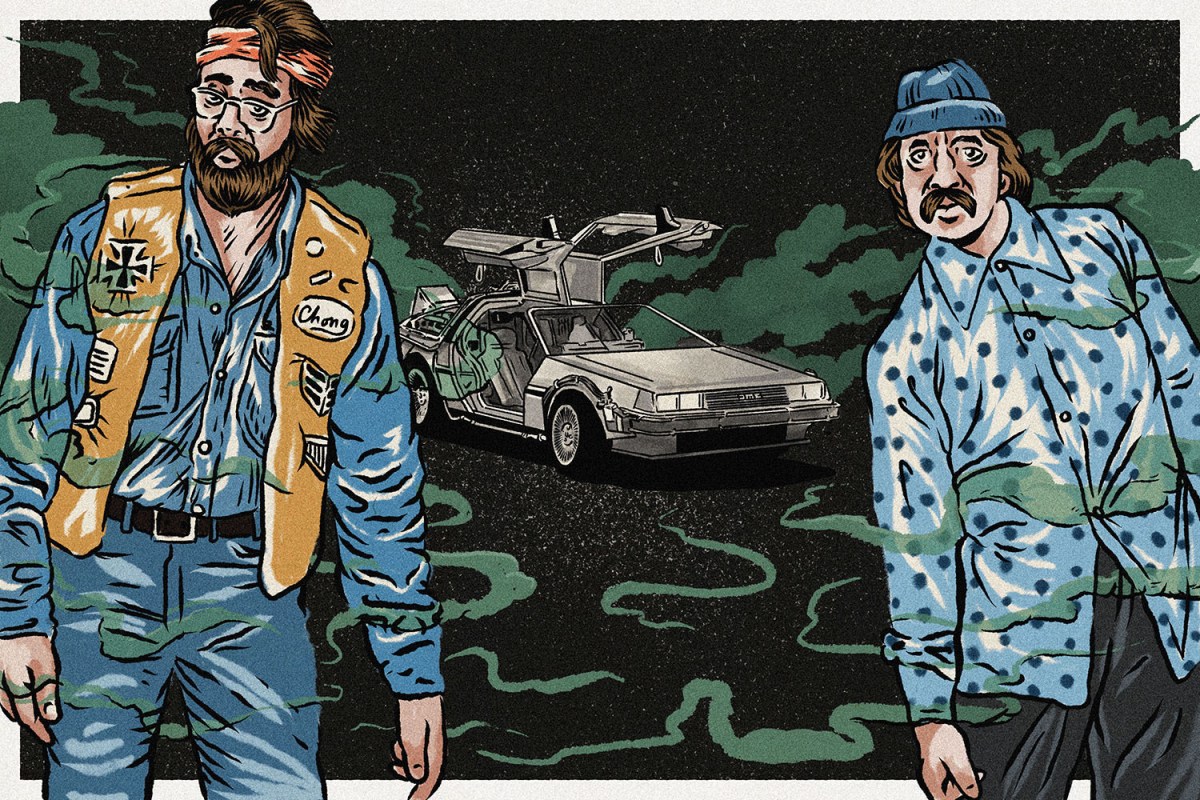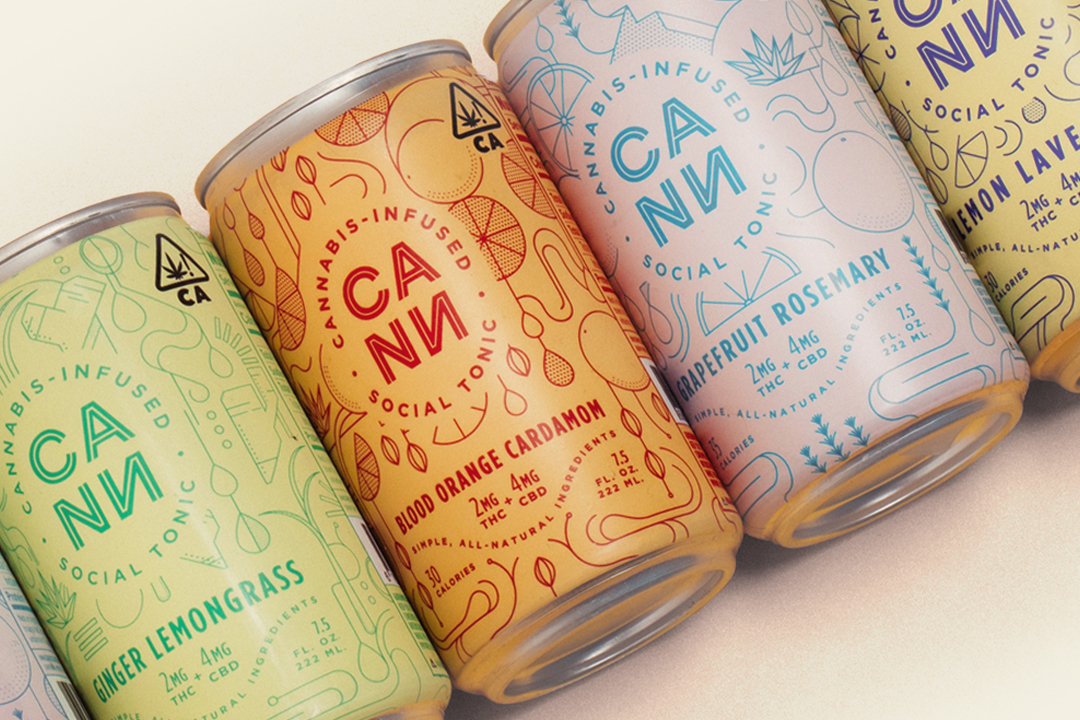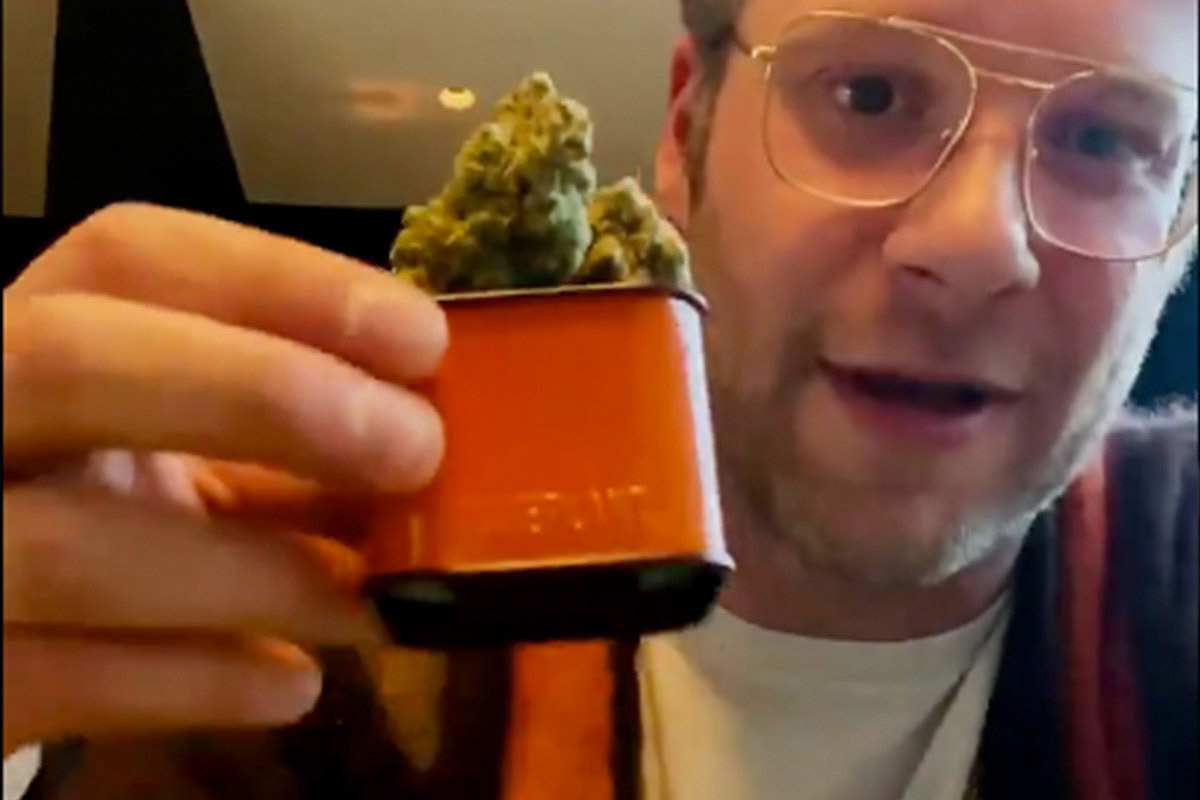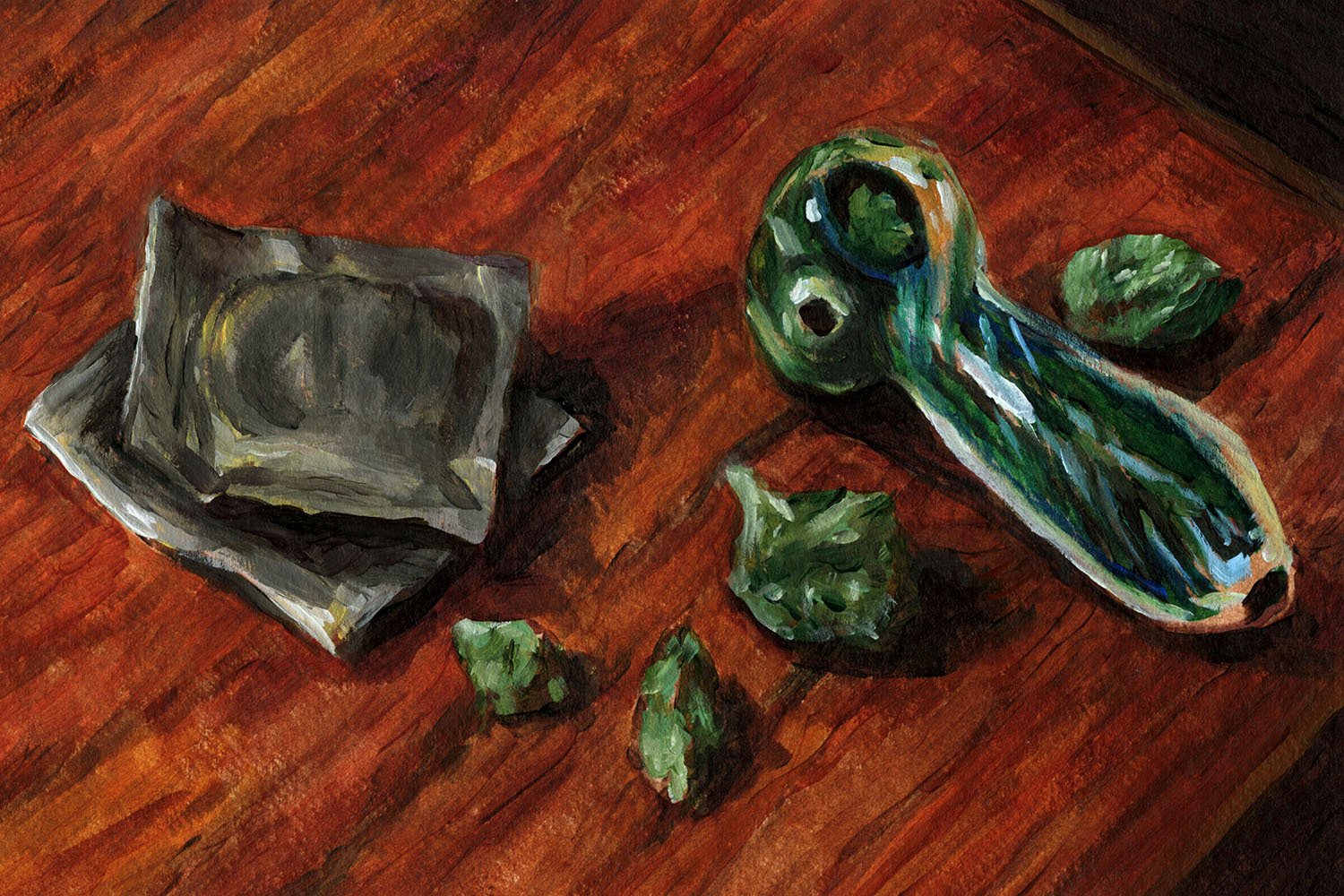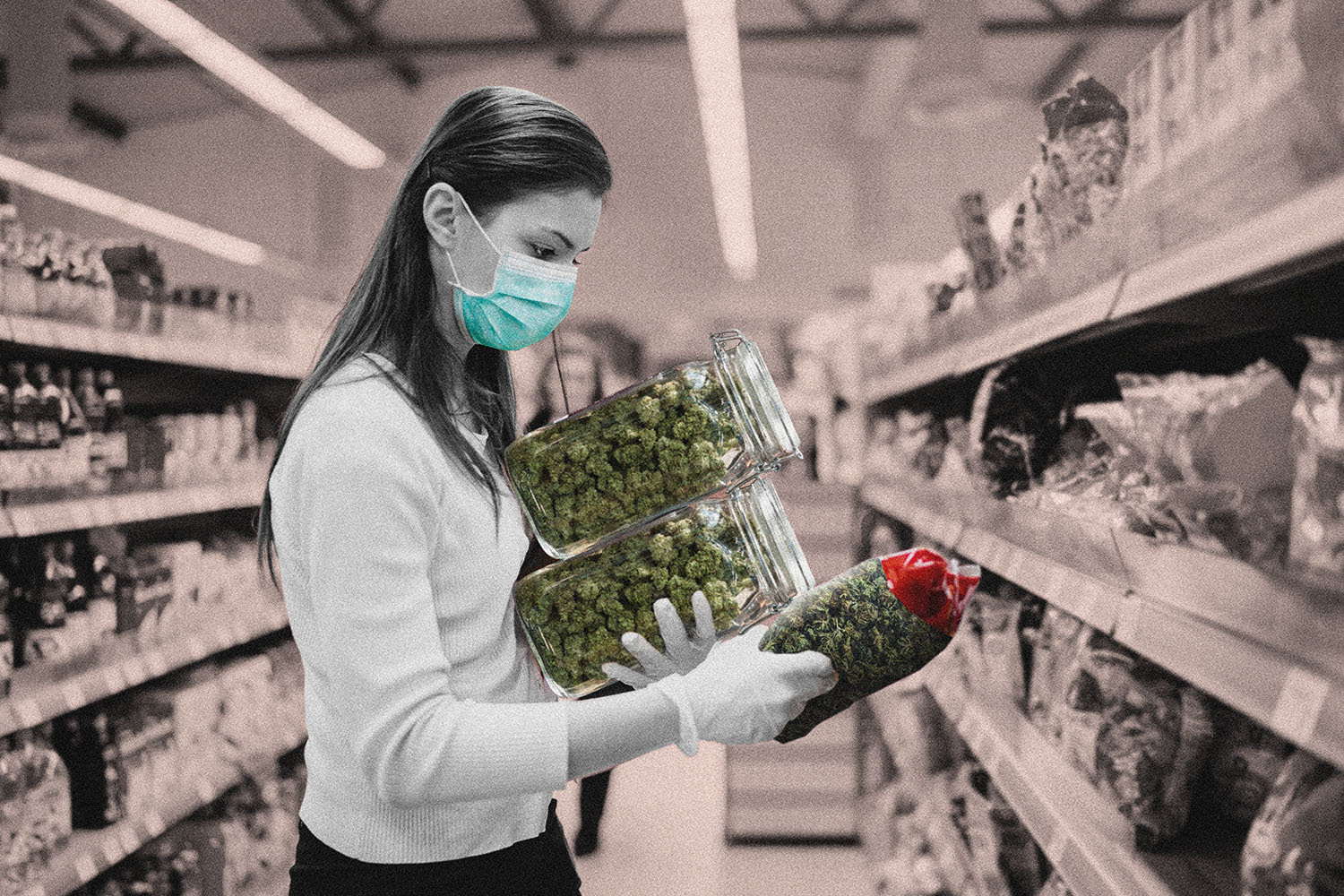So what’s the deal with weed?
It’s sort of legal, but also not really. It’s a plant … or at least a flower that’s derived from one. Back when it mostly grew out of the ground, it was demonized by Nixon’s DEA as a gateway drug; now that it’s taxable and grown in hulking, byzantine greenhouses, it’s seen as a path to redemption from the opioid epidemic and a road to riches for investors and entrepreneurs.
The sales of legal cannabis are projected to reach somewhere in the realm of $35 billion within the next five years. The actual economic impact of that market could hit $130 billion in that same timeframe. Marijuana startups are cropping up like they were being founded in hydroponic soil and bathed in UV light. Dozens of cannabis companies (mostly based in Canada, since it’s not federally legal in the US) are already available for trading in American markets. Marijuana is fully legal in 15 states (as well as DC) and at least somewhat legal in all but three states.
The green wave is coming. My inbox flows over with PR pitches from upstart marijuana companies and thinkpieces about the industry every week. In my financial news consumption, I hear about cannabis stocks on a near daily basis. In my political reading, I’m constantly reminded of the state-vs.-federal debate that underpins policy and legalization. And in keeping up with social-justice issues, I’m constantly reminded of the ugly and devastating impact marijuana and the war on drugs has had on Black and brown communities across the country.
But rather than try to summarize all these things and write a dreadfully underqualified synopsis of where the industry is heading over the next decade, I figured it would be better to talk to experts – founders, investors, lobbyists, organizers and more – from across the cannabis landscape to get their thoughts directly. I asked them broad questions about what the next decade of consumer cannabis will look like, and from their answers, I was able to parse together 12 predictions for what the next 10 years hold.
This is not an exhaustive or definitive list; it is a compendium of common themes and predictions I saw from speaking with a sizable amount of industry professionals. It is by no means gospel, but it is — we hope — a document that will give you thoughtful insight into a nascent sector of the American economy that is only destined to keep growing. That’s what plants do, after all.
Getting Stoned Out of Your Gourd Will No Longer Be the Goal
“Microdosing cannabis will become the preferred performance, productivity and wellness tool across many professions, including pro sports. Microdoses of cannabis become commercially available in settings where consumers face triggers for stress or anxiety, e.g., airports and airplanes, dental offices, etc.” – David Cookson, Founder, Sula
“There’s a misconception about what a large swath of the market wants out of a cannabis experience. While there’s a legacy community of consumers who want to get very high or for whom a high THC percentage is simply the norm, there’s a much larger existing and nascent consumer demo that is looking for a more moderate and functional high. Just as not everyone wants to be drunk when they drink, not everyone wants to be blasted when they’re high.” – David Weiner, Co-Founder, Gossamer
“Microdosed products will not only become more popular, they will be the norm. Products with a mild dose of THC are the most appealing to mainstream consumers that are open to cannabis but have not tried or have not tried recently. It is these products, like our Cann Social Tonics with 2mg THC, that will bring in waves of new consumers to the industry. They care about feeling in control, having consistent experiences that are turnkey, energizing and social. Watch out for more and more microdose THC products across all product categories.” – Jake Bullock, Co-Founder, Cann
We Will Stop Thinking about Weed in Terms of Indica or Sativa
“As more research is funded, we see the supremacy of the Indica/Sativa dichotomy being challenged. Research suggests that looking at cannabis strictly through this framework might not serve our understanding in the way it is marketed to us.” – Max Spohler, Co-Founder, Artet
“Classification of ‘strains’ as indica, sativa or hybrid as well as creatively named hybrids/strains will be largely replaced by a scientifically supported classification system that more accurately correlates to evidence-based ‘effects’ and indications for cannabis compounds.” – Cookson
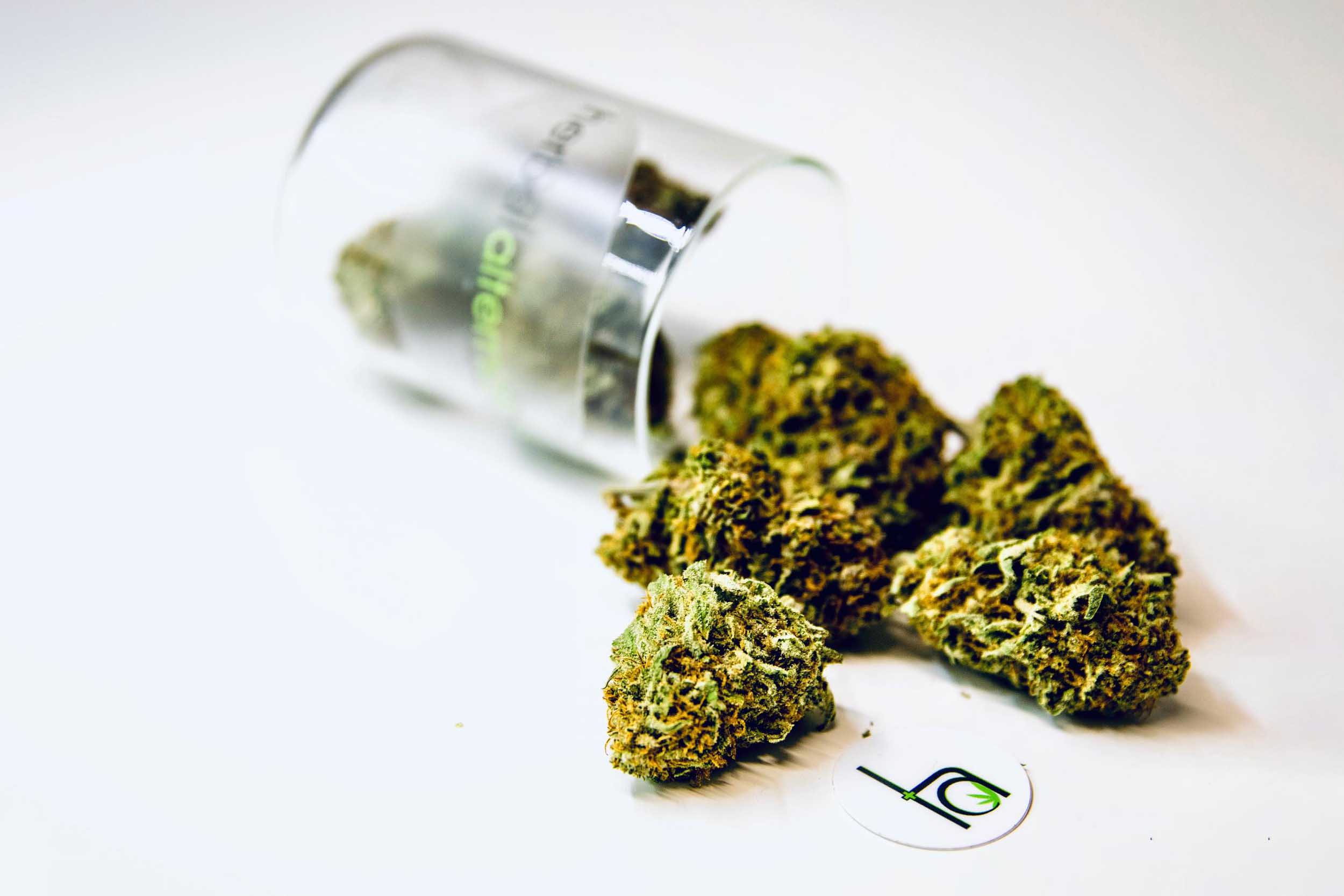
THC and CBD Are Only Part of the Equation
“Consumers will continue to become more knowledgeable about the benefits of cannabis and its various compounds beyond just THC and CBD, including terpenes and cannabinoids like CBN and CBG. They will also understand how cannabis can fit into their daily routines along with other supplements and health products.” – Jim Baudino, Partner, Sands Lane Holdings
“[There will be an increase in] awareness of minor cannabinoids and terpenes. We’ve only scratched the surface of understanding this plant’s full potential. Right now many consumers only know THC and CBD, and many buy weed solely on how high the THC percentage is. However, terpenes impact the high more than many consumers realize, so I think those will be more in the spotlight in coming years.” – Kate Miller, Co-Founder and CEO, Miss Grass
“More conversations [will revolve] around the impact of various cannabinoids (outside of the THC and CBD conversations that currently dominate). The cannabis plant in so rich and versatile, and up until now we primarily focus on two, while there are well over 100 to consider. – Nidhi Lucky Handa, Founder, Leune
The Stigma of Being a Weed Smoker Will All but Disappear
“If 2020 had one silver lining, it was the progress made in the cannabis industry nationally. Consumers are more open-minded than ever and are taking active steps to destigmatize this glorious plant!” – Handa
“I believe the most profound trend we’ll see is the continued mainstreaming of cannabis as part of the health and wellness lifestyle of most adult Americans. It is very likely to be as much a part of the social fabric of the country as alcohol.” – Kevin Murphy, Chairman and Founder, Acreage Holdings
“Media representation. The mainstream conception of cannabis is going to be insane! We’re starting to see interesting pairings already. For instance, it’s not a coincidence that Snoop Dogg is doing Corona commercials. Corona and Snoop Dogg are both invested into Canopy Growth.” – Flip Marlee, CEO, Black Cannabis
“Cannabis has a poor public rapport and is currently branded as a gimmicky, stoner-filled marketplace, but the future of cannabis includes definition and credibility in society. The negative cogitations around weed today will no longer exist as additional product knowledge becomes available. Today, high-level cannabis content is very nascent and lacks diversity. The mindset that native cannabis pioneers are solely responsible for directing the industry forward will shift as leaders from ancillary industries apply strategies and best practices to the space.” – Brandon Terrell, Founder, Treehab

Cannabis Won’t Continue to Be Relegated to Cannabis-Only Locations
“Cannabis consumption will move on-premise and the hospitality industry will play a big role. Our generation grew up in the era of medical cannabis and decriminalization and are comfortable with the idea of cannabis consumption in social settings. In the next decade, it’s very possible you will be able to enjoy cannabis cocktails at the same venue you might have considered ordering a negroni or a bottle of wine. We’re already seeing this play out in the non-alcoholic drink movement, where some of the best bars and restaurants in the world create award winning non-alcoholic drink menus to complement their cocktails, so it’s only natural that it will extend into cannabis as regulatory frameworks make way for the food & beverage industry to participate.” – Zach Spohler, Co-Founder, Artet
“Cannabis will be incorporated into spaces, rather than spaces built around cannabis. Right now things are pretty binary: here’s the ‘weed thing’ and here’s the ‘normal thing,’ be it a bar, a restaurant, a store, a social club, whatever. Of course, there will be large-scale hospitality plays and consumer experiences — hotels and travel, specifically, come to mind — that are rooted in cannabis, but more than that, we think it’ll start to simply be on offer in more places. Cannabis will be built organically into our consumer experiences without calling an overwhelming amount of attention to that fact.” – Weiner
“I’m excited to see the hospitality and experiential space embrace cannabis. Weed in mini bars at hotels, consumption lounges, immersive art experiences, etc.” – Miller
We Will See Major Brand Segmentation
“The biggest trend I foresee will be the further development of brand segmentation. Cannabis has so many practical applications that span from recreational to wellness to medicinal, and the industry is only getting started in truly understanding how to carve out brands and products that speak to use-cases consumers care most about.” – Handa
We’re already seeing consumers shift their thinking away from simply THC percentage or potency (mg) to a broader one around the interaction of how different cannabinoids present in a given product or extraction process can dictate the type of experience they can expect: pain relief, deep relaxation, social consumption, etc. – Xander Shepherd, Co-Founder, Artet
Things Will Still Progress at a the Local Level
“Right now, one in three Americans live in an adult-use state. In a few short years, we could see legal cannabis in every single state, while still illegal at the federal level. The growth and success of cannabis legalization is a state-by-state story. That reality demanded then and continues to demand now entrepreneurs who know their communities and their communities’ needs, have established ties with the community, and are familiar with their state and local government bureaucracies. Local is an important word in the cannabis lexicon. Supporting the people who started this industry — many of whom went to jail for doing so — along with the communities and neighborhoods decimated by the failed war on drugs is more than a trend. It’s the foundation of the entire industry. ” – Bridget Hennessey, VP Government Relations, Weedmaps
“The biggest surprise regarding cannabis policy may be inaction by federal leadership. I foresee state legislation continuing to direct the growth and expansion of cannabis industry infrastructure. Many will be surprised by that lack of national expungement initiatives.” – Terrell
The Cannabis Industry Will Come to Look like Just about Every Other Industry
“This may sound counterintuitive: the more people interact with cannabis, the more they are comfortable with it, and the more critics/skeptics/opponents realize the sky doesn’t fall when cannabis is legalized . . . the more cannabis policy will change. Over time, the cannabis industry will infuse itself into the mainstream business community, And we’ll need to take a hard look at the misguided policies — like restrictive zoning ordinances and unreasonable tax rates — that were developed in reaction to propagandist misinformation. And correct them.” – Hennessey
“With cannabis a fully legal industry, it will be treated as any other mainstream CPG, pharmaceutical or retail investment opportunity.” – Murphy
“Another major trend will likely be the cannabis industry at large starting to look a lot like the beer industry, wherein there are several massive companies that hold a huge market share existing simultaneously with a very robust craft or ‘micro’ market. This is already being driven by consumer preferences, but will need to be guided by sensible regulatory structures that don’t make successful operation unnecessarily difficult for small businesses.” – Morgan Fox, Director of Media Relations, National Cannabis Industry Association
“As the number of states with legalized cannabis continues to expand, regulations around marketing and advertising will become more defined and aligned with alcohol and tobacco regulations. Media outlets will continue to increase the acceptance of cannabis brands and allow for more advertising on the various platforms, including TV and radio. Authentic and transparent brands that have a purpose beyond sales will be the norm, and we will see brands continue to leverage data-driven insights to help them cut though the clutter to reach their intended audiences. Multi-state operators will continue to mature, building brands with increased awareness and increased overall revenue, allowing for increased marketing budgets.” – Baudino
“In my view, the COVID pandemic has permanently accelerated the adoption of e-commerce across all industries, and cannabis is no exception. Retailers and cannabis brands will have to figure out how to make delivery and curbside pickup a profitable business, even under the industry’s intense regulatory framework. Cannabis consumers are going to expect the cannabis e-commerce experience to be just as seamless as food or alcohol delivery is today.” – Merrick Friedman, Investor, Achari Ventures
“The idea of ‘over-the-counter’ cannabis is super interesting to us, and we think it’s possible that <2.5mg THC products will get regulated differently than the rest of cannabis and become as easy to purchase as alcohol (at liquor stores and bars). CBD had its moment a couple years ago and a lot of people thought this was the answer to more ‘accessible’ cannabis, but is slowly falling out of favor with consumers who are tired of products with questionable efficacy. Beer and wine get certain licenses, hard liquor is treated differently. Prescription-strength medication is behind the counter, and often less potent versions can be purchased over the counter. Eventually cannabis will follow suit and split by potency rather than cannabinoid.” – Luke Anderson, Co-Founder, Cann
“I believe a peer-to-peer cannabis platform will emerge allowing growers to brand their plants and distribute directly to consumers. I am confident the next major disruptive technology will derive from the cannabis industry to include logistics and infrastructure for gaining access to weed.” – Terrell
You Will Know Much, Much More about What You Put in Your Body
“With continued research and testing, cannabis brands will be better able to identify and develop specific formulations that allow for more precise responses for consumers. Whether it is reduced anxiety or improved sleep, brands will more effectively leverage cannabis compounds along with other nutrients to provide an enhanced consumer experience.” – Baudino
“[We’ll see] more predictable, dialed-in experiences. Consumers are smart — they do their research and they want to understand their sweet spot in terms of both dosage and form factor to create desired outcomes. Long gone are the days of the mystery brownie that left you high for days, but we still have a ways to go.” – Handa
Get That Cooler Full of Weed Drinks Ready
“I predict that cannabis-infused beverages will become one of the top consumption methods for cannabis. While there are many hurdles to overcome, including complexity of distribution, limited retail options and FDA regulations, if you look at where alcohol is currently distributed and realize that cannabis-infused beverages can be a viable alternative, the opportunities are significant. There are many companies, including Constellation Brands and Molson Coors, who have bet big on its success.” – Baudino
“Over the next decade, we believe that the majority of new cannabis consumers, and eventually the majority of all cannabis consumers, will be drinking their cannabis. This seems obvious to us. We have spent thousands of years of human history socializing around beverages. We consume other mild intoxicants, like alcohol and caffeine, in beverages (and in microdoses as well!), why would we think cannabis would be any different?” – Bullock
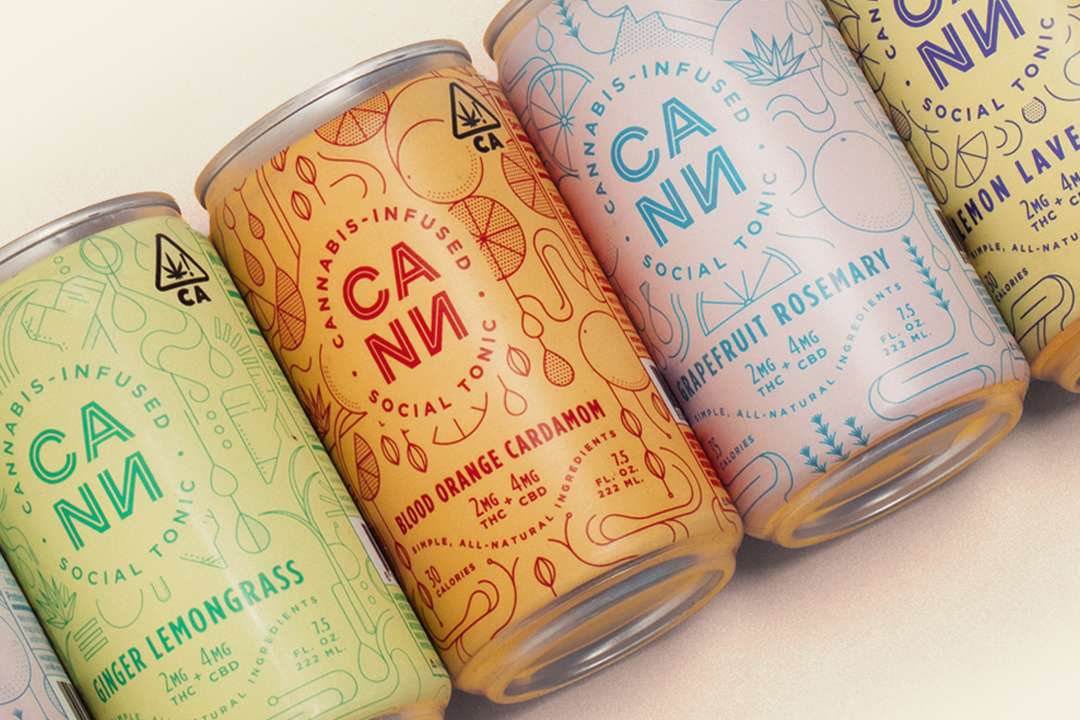
Scientific Research on the Efficacy of Cannabis as a Medical Treatment Will Ramp Up
“I think cannabis will become a major force in the health and wellness category. The scientific community’s understanding of cannabis is still very much in its infancy, as researchers have been unable to properly study the plant (due to its historic status as an illegal drug in most of the world). Over the next decade, as more knowledge is gained about the power of the hundreds of cannabinoids and terpenes within the plant, I expect cannabis to help individuals deal with a wide variety of health and wellness issues, ranging from sleep aid to pain management to anxiety reduction. We have only begun to scratch the surface. But the ‘medical cannabis market’ will no longer exist. Cannabis will either be sold recreationally, as a pharmaceutical drug, or as a health and wellness product.” – Friedman
“My north star hope is focused on the medicinal qualities of the plant. I look forward to the day we have qualified and undeniable research that certain cannabinoids can serve as a viable treatment option for certain deadly illnesses like cancer.” – Murphy
“My hypothesis is medical marijuana use will emerge as the dominant use case for cannabis over the next decade. Access to the plant will be increasingly abundant as weed is decriminalized, legalized, and commercialized across the world. Decriminalization of marijuana will open the door for research giving insight to untapped benefits of previously discarded cannabinoids and plant components. Broader research creates new opportunities for medical advancements, consumer products, business models, and job creation. With increased knowledge of the plant’s benefits, more Americans will transition from pharmaceuticals and prescription medication to marijuana as an alternative medicine.” – Terrell
The Racist Indiscretions and Wrongdoings of America’s Drug Policies Will Need to Be Addressed
“Cannabis companies [will no longer be] getting rich without giving back to communities that were impacted by the War on Drugs. We’re seeing small groups created to oust big giant cannabis corporations looking to only cash in. Rightfully so. Honestly, I don’t think any brand will be successful without some consumer compassion.” – Marlee
“So many cannabis companies and operators are driving toward financial outcomes without any recognition of the disproportionate impact the War on Drugs had on Black and brown communities. Any cannabis company that succeeds in the future needs to have social justice ingrained in its DNA, and needs to have the receipts to back up the work they are doing to promote diversity, equity and inclusion in the industry.” – Anderson
“I believe that Social Equity will become a dominant trend in the industry more and more over the next decade. Social Equity had been a key piece of legislation in a number of states as they’ve implemented plans for legalization. Especially after what we’ve experienced since last year, I believe that people are finally starting to realize the need for economic and restorative justice in this multi-billion dollar industry.” – Tahir Johnson, Community Officer, Uplift Maryland
“Federal legalization is definitely a realistic goal for the next decade. Cannabis is easily one of the most bipartisan issues today. For a while there was a general misunderstanding that cannabis was a blue state, liberal thing, but now that places like Montana and South Dakota have gone recreational, people — and especially politicians — are finally waking up to just how popular legalization is across the political divide. Moreover, there’s a collective understanding that there have to be major shifts in our criminal justice system, and legalization is low-hanging yet powerful fruit that could quickly make substantive changes to our society as whole, and especially for minority groups that have borne the brunt our terrible and terribly racist so-called ‘war on drugs.’” – Weiner
“There were almost 700,000 marijuana arrests in 2018, making up 43% of all drug arrests. While the general stigma of cannabis and racial inequality will still be prevalent over the next decade, arrests for cannabis use will be significantly reduced due to continued legalization and decriminalization efforts on both the state and federal level. We can only hope that the wrongs will be righted.” – Baudino
“My hope is that the landscape of founders and investors within cannabis becomes more diverse over the next decade. It is clear that the war on drugs disproportionately affected minority and disadvantaged communities. As a result, the legalization of cannabis should be a key driver, and place to start, for reform around social justice. Any new federal or state regulation should include legislation aimed at creating an inclusive, diverse, and equitable industry.” – Friedman
This article was featured in the InsideHook newsletter. Sign up now.
